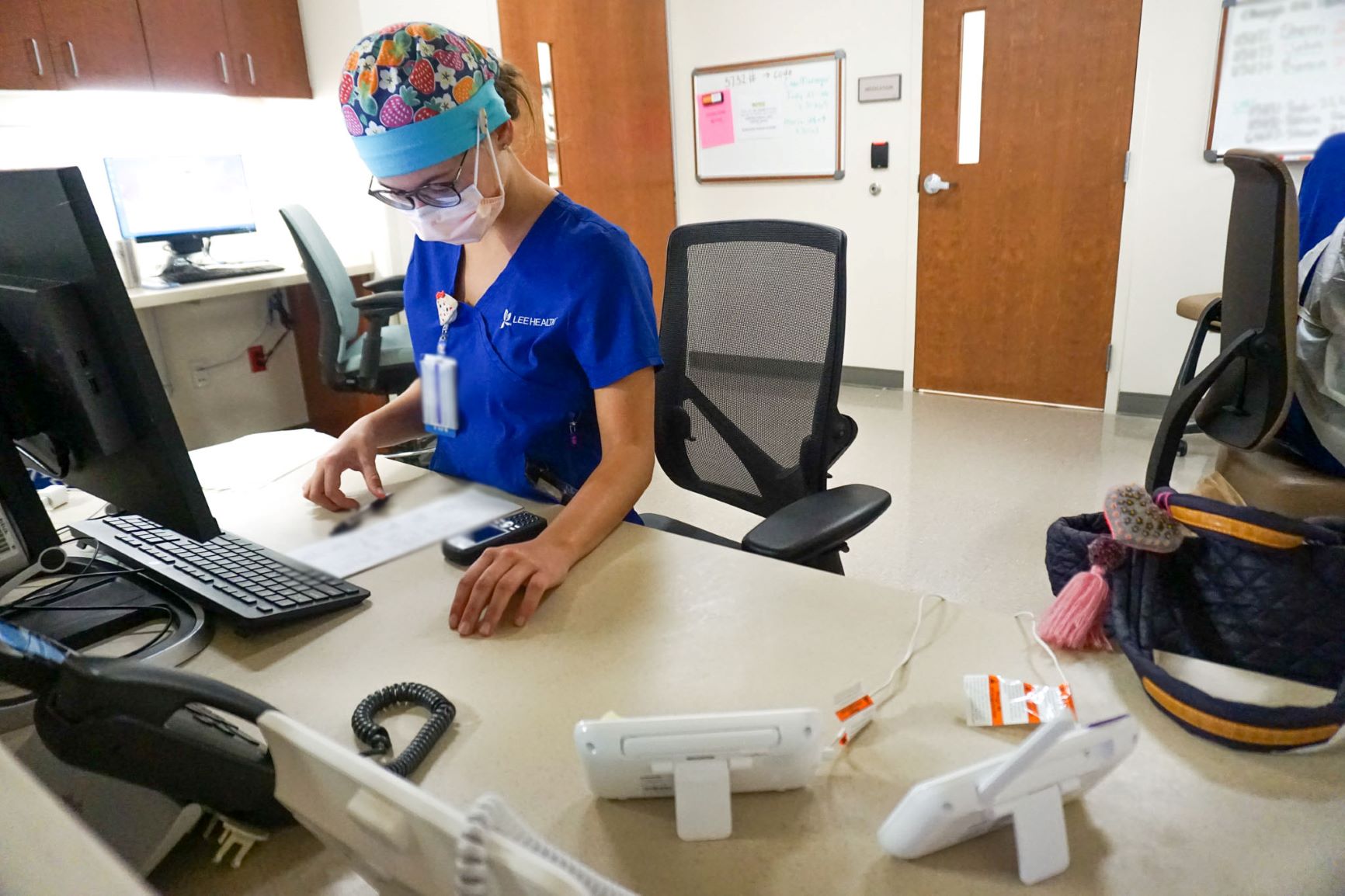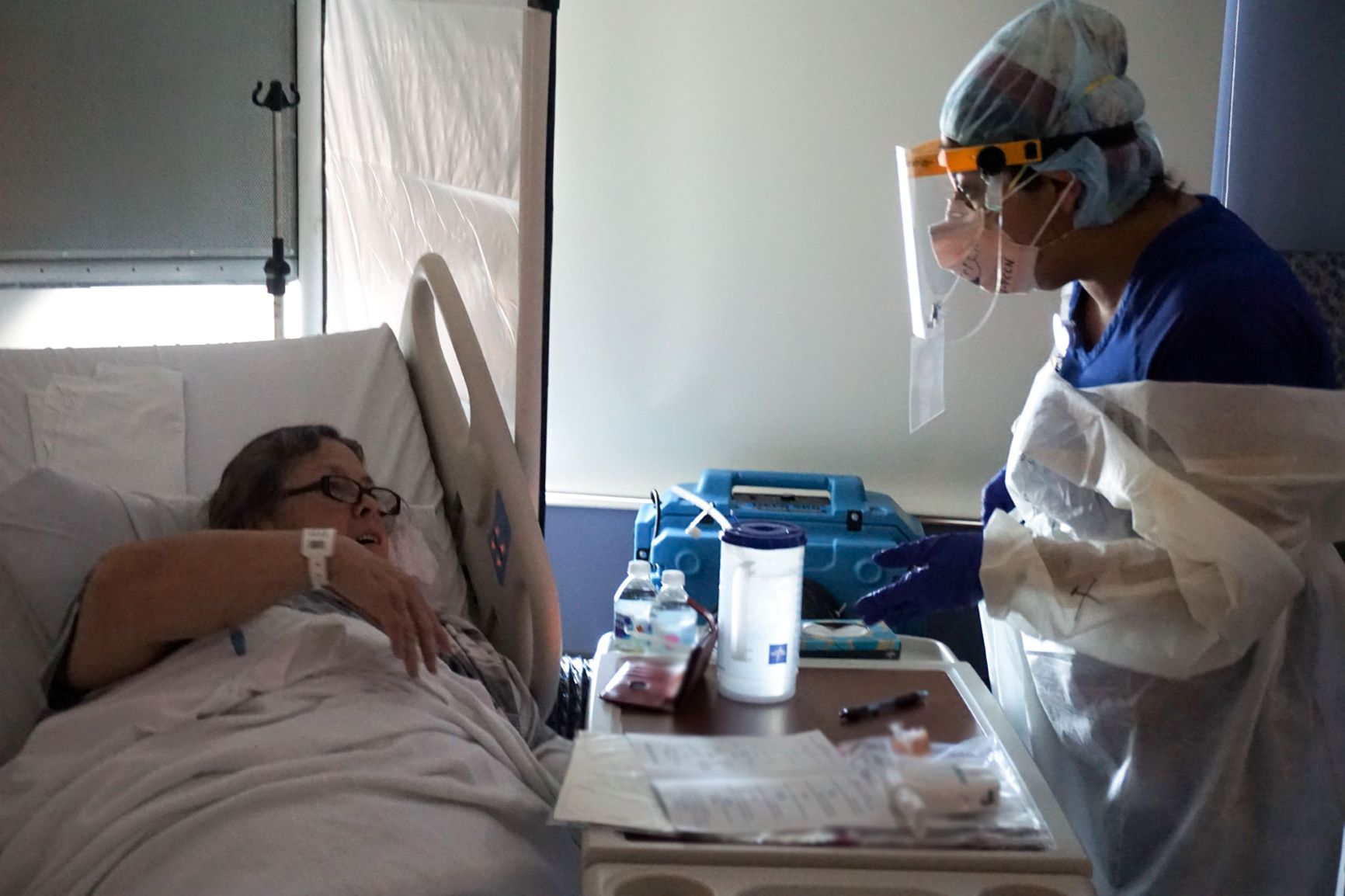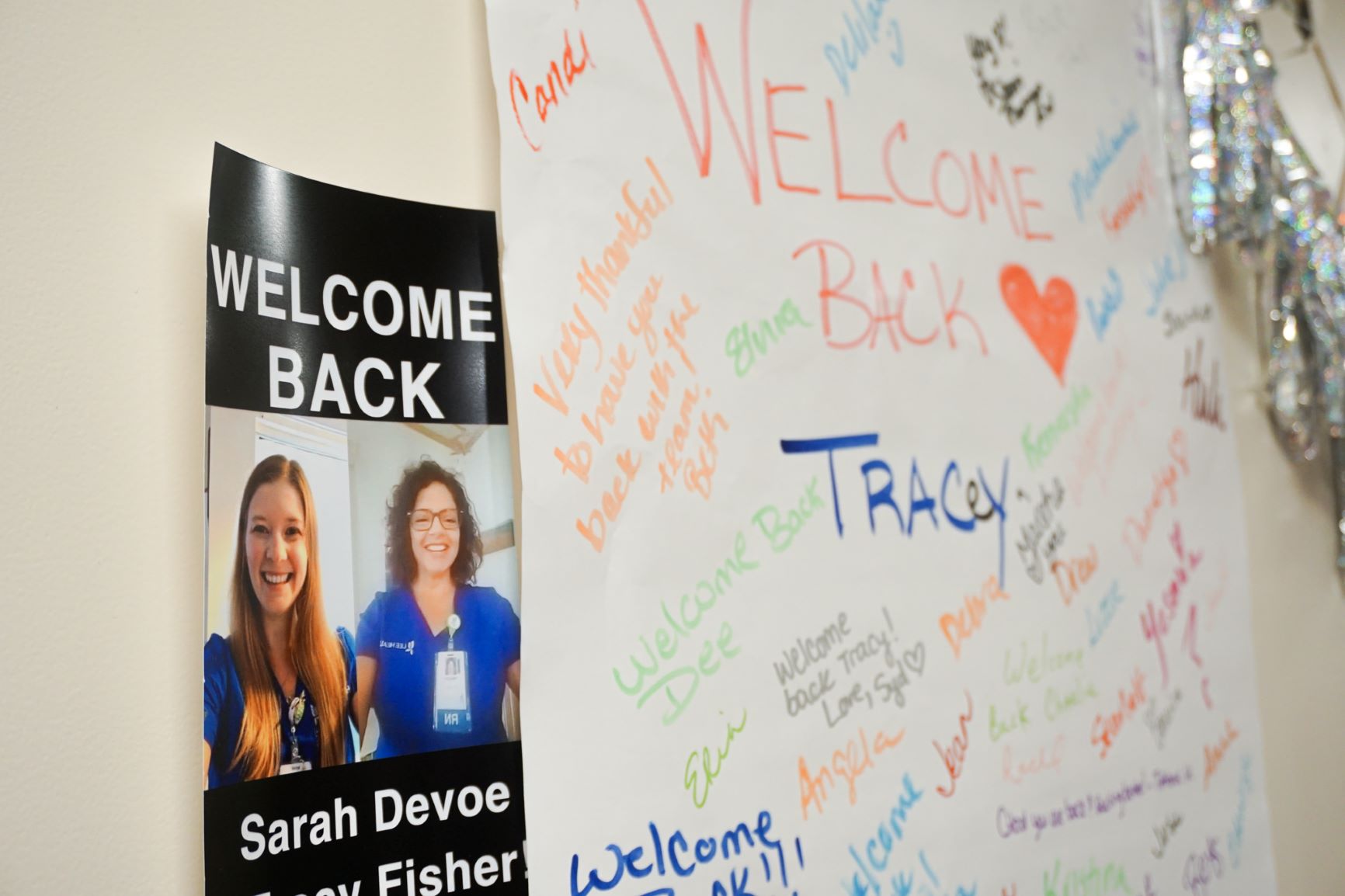Nurses Battle Isolation in Fight Against COVID-19
Coronavirus (COVID-19)Posted:
 Sydnee Russo, RN, takes notes for some of her patients and continues to check the monitors of two patients who need extra care.
Sydnee Russo, RN, takes notes for some of her patients and continues to check the monitors of two patients who need extra care.
But This Resilient Team Continues Exceptional Care in Difficult Times
The shift always begins with a briefing from the departing staff, but right now, the exchanges are different in a unit where every patient can potentially test positive for COVID-19.
The virus currently affecting the entire world has no known vaccine or cure. Patients who contract the virus exhibit signs and symptoms that include shortness of breath, cough, fever, muscle pain, sore throat, loss of taste or smell and confusion.
“It has changed nursing a lot,” says Sherri Parmar, RN, a four-year nursing veteran who started working on the front lines of the war on the virus earlier this year. “We are all concerned about PPE (personal protective equipment) and we gown up at the beginning of every shift.”
The gear covers their arms and legs and includes face masks and shields, making health professionals look less like caring people and more like expressionless machines.
“There are a lot of unknowns when we go into a patient’s room so we have to protect ourselves,” Sherri said. “At the same time these are people. And when we go into the room we are in there sometimes for an hour.”
‘Patients Need Human Contact’
Sherri and other nurses monitor patients who are unconscious and report to their families on a daily basis. Patients who are conscious and can communicate have an opportunity to talk to their families on iPads.
“We also provide them with an activity pack if they can use their hands,” Sherri said. The crossword puzzles and brainteasers help them pass the time.
 Sherri Parmar, a Gulf Coast Medical Center nurse, shares a laugh with a patient.
Sherri Parmar, a Gulf Coast Medical Center nurse, shares a laugh with a patient.
On a normal shift nurses, nursing assistants and therapists may be in and out of numerous rooms several times each hour. However, because of the high risk associated with COVID-19, staff enters a room and stay as long as needed to complete all tasks, and then leave for longer periods of time.
“Patients need human contact,” Sherri said. “We help calm the patient — and a lot of them just want to talk.”
A bad day means a patient is declining and needs the assistance of a ventilator to breathe or succumbs to the disease. The best days happen when a patient improves and is independent and oriented.
Sydnee Russo, RN, looks for small improvements.
“If the patient can talk to me and use the bathroom, and can walk—that’s the biggest blessing,” Sydnee said.
Patients who have multiple conditions often complicate the care, Sydnee said. “Nursing home patients can have dementia, so they need feeding and most are incontinent. In this population we aren’t seeing a drop in the population.”
While the number of coronavirus cases continues to fluctuate in Lee County, patients who are age 65 or older account for the highest percentage of those still hospitalized.
“I really love my job, but that part is hard,” Sydnee said.
‘We Can Do This’
Like many other people, Sydnee has also experienced isolation on a personal level. “I haven’t seen my parents since this started,” she said. “Facetime is the best invention.”
Nurses who work on the floor where COVID-19 patients stay are often isolated, too. They didn’t participate during a recent celebration of National Nurses Day. They shower frequently and change out of their scrubs when they leave the hospital.
“It’s different than anything I could have predicted,” Sydnee said. “I’ve never been through anything like this, but the support we have had from the community makes every day a little bit better.”
Beth Thacker, BSN, MSN, leads the Medical Progressive Unit that assumed responsibility for COVID-19 patients. When she presented the idea that her team would care for some of the most critically ill patients in the hospital, they did not hesitate.
“They came together,” she said. “They said, ‘We can do this.’”
There are more than 100 team members, including nurses, housekeepers, nursing assistants, physicians, dietary staff and lab techs, who make sure each patient has comprehensive care.
“We have more than 40 people working each shift,” Beth said. “I couldn’t be more proud of them. It takes every person to care for these people .”
They have also looked out for one another. When one of the nurses tested positive for the virus, he became a patient on the same floor where he worked.
“The caring and compassion for each other was evident and they worked to save his life,” Beth said. “This team is resilient.”
 Sarah Devoe, RN, and Tracey Fisher, RN, were welcomed back after being self-quarantined for 42 days when they tested positive after taking care of a patient.
Sarah Devoe, RN, and Tracey Fisher, RN, were welcomed back after being self-quarantined for 42 days when they tested positive after taking care of a patient.
Our COVID-19 Resource Page
-
Public Health Awareness
Find our latest updates on COVID-19 vaccines and testing. Lee Health's hub for COVID-19 resources in SWFL.


